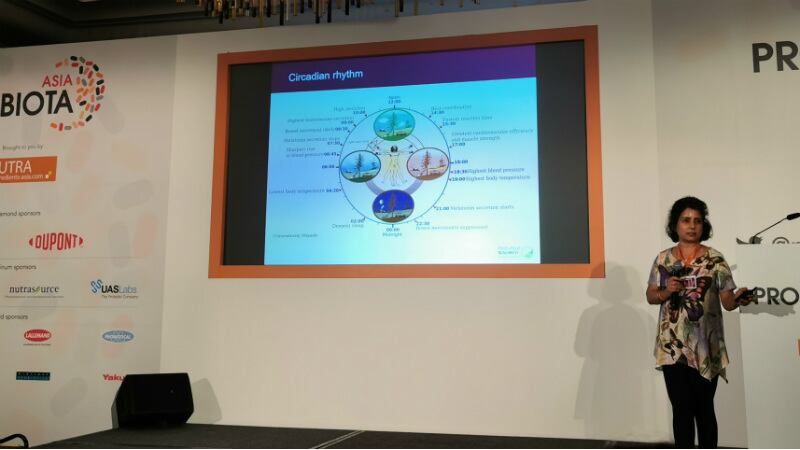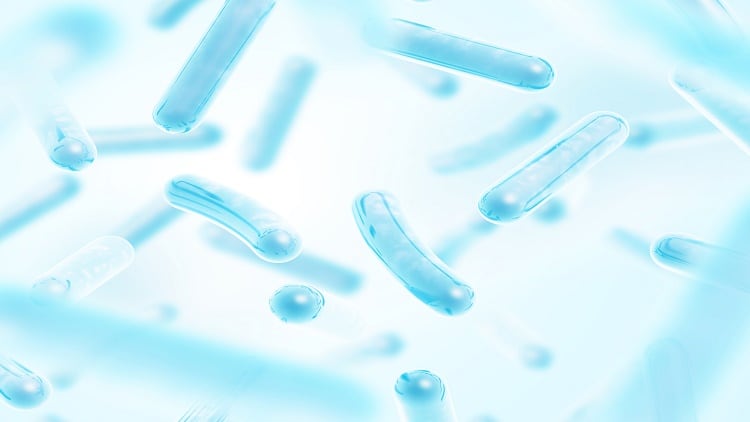Using her team’s recent research on kiwifruit in a gut model as an example, New Zealand Institute of Plant & Food Research Science Team Leader, Microbiome & Metabolism Dr Shanthi Parkar said that plant foods rich in fibre (prebiotics) and polyphenols have the potential to increase good gut bacteria and reduce bad bacteria.
“In a mouse study, we fed green and gold kiwifruit to the mice and found that the kiwifruit had the same effect as the prebiotic inulin in terms of increasing the good bacteria Bifidobacterium,” she told the audience when speaking at our recent Probiota Asia 2019 event in Singapore.
“Beyond that, kiwifruit could also do some things that inulin have not conclusively shown, which were to increase the numbers of Ruminococcaceae and decrease bad bacteria Bacteroides.”
In terms of sleep, the was also postulated that green kiwifruit showed greater effects on modulating gut bacteria as compared to gold variants.
It was observed that green kiwifruit consumption led to enhanced intestinal rhythms (affecting expression) of the per2 and per3, which are two of eight circadian rhythm ‘core clock’ genes that control the body’s central and peripheral clocks and affect sleep.
“This is likely due to the higher fibre content in green kiwifruit, which has about twice the amount of fibre as compared to gold,” said Dr Parkar.
“This is exciting given that unlike ingredients such as cellobiose or other fibre ingredients, kiwifruit are natural and palatable whole foods, and therefore have consumer acceptance.”
In addition to regulating the body clock for sleeping, another study on fibre and sleep looked at how this could potentially improve the actual quality of sleep.
“Rat pups fed with a prebiotic cocktail comprising galactooligosaccharides and polydextrose, along with milk components, were found to have better sleep - There was a significant increase in NREM sleep (deep sleep), associated with a decrease in Deferribacteres bacteria which is known to produce hydrogen sulfide,” said Dr Parkar.
“In another study, 100 ml of the probiotic Lactobacillus casei Shirota was given to medical students studying for exams for nine weeks. It was found that they were less sleepy after waking and also showed deeper sleep, which is associated with memory consolidation.”
When to eat these
Dr Parkar also highlighted a study that demonstrated the potential importance of eating foods at certain specific times in order to achieve the most benefits for the gut flora, even if getting nutrients from a poor diet.
Mice were split into two groups that either were fed a high fat diet as and when desired or were fed only during the dark (during their active hours), in addition to a normal control group.
“At the end of 8 weeks, there were clear protective effect of time-restricted feeding,” she said.
“If the mice were fed only for 8 hours, rather than whenever they wished, they showed better weight control, glucose tolerance and cholesterol, as compared to ad libitum (whenever they wished) diet of either normal chow or high fat. This has implications in new diet fads such as intermittent fasting.”
Importantly, it was also observed that the rats in the time-restricted feeding group showed a restoration of the cyclical rhythm of good bacteria Ruminococcace within the Firmicutes bacteria family.
“This is one of the first studies to show that when you eat is as important as what you eat, in terms of influencing the gut microbiome,” she added.



